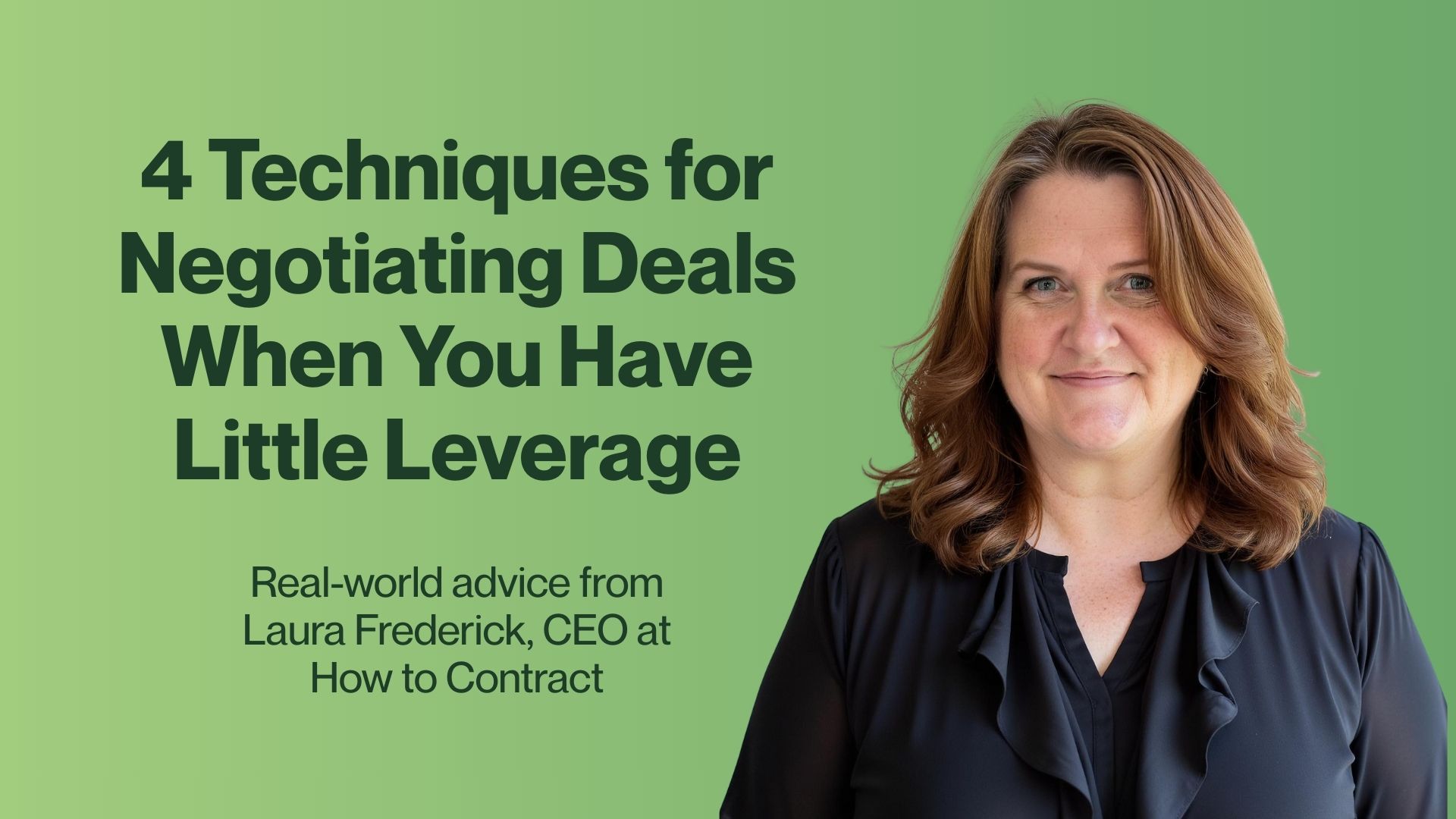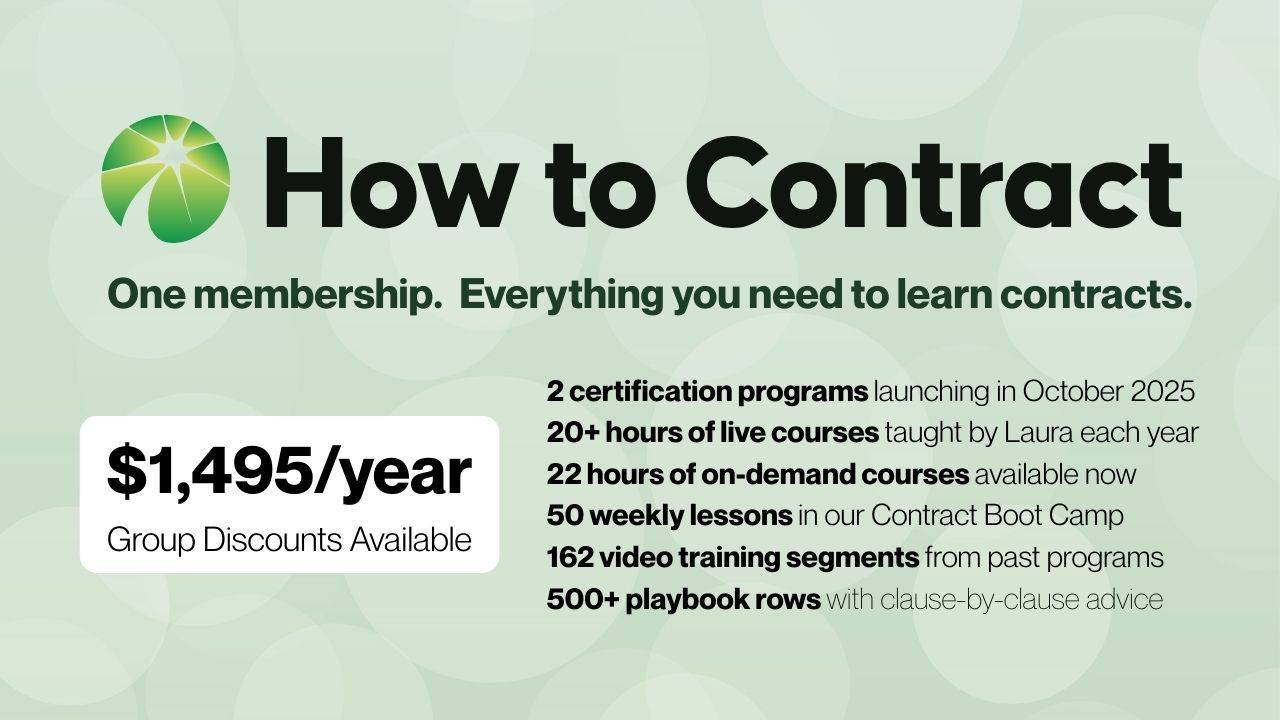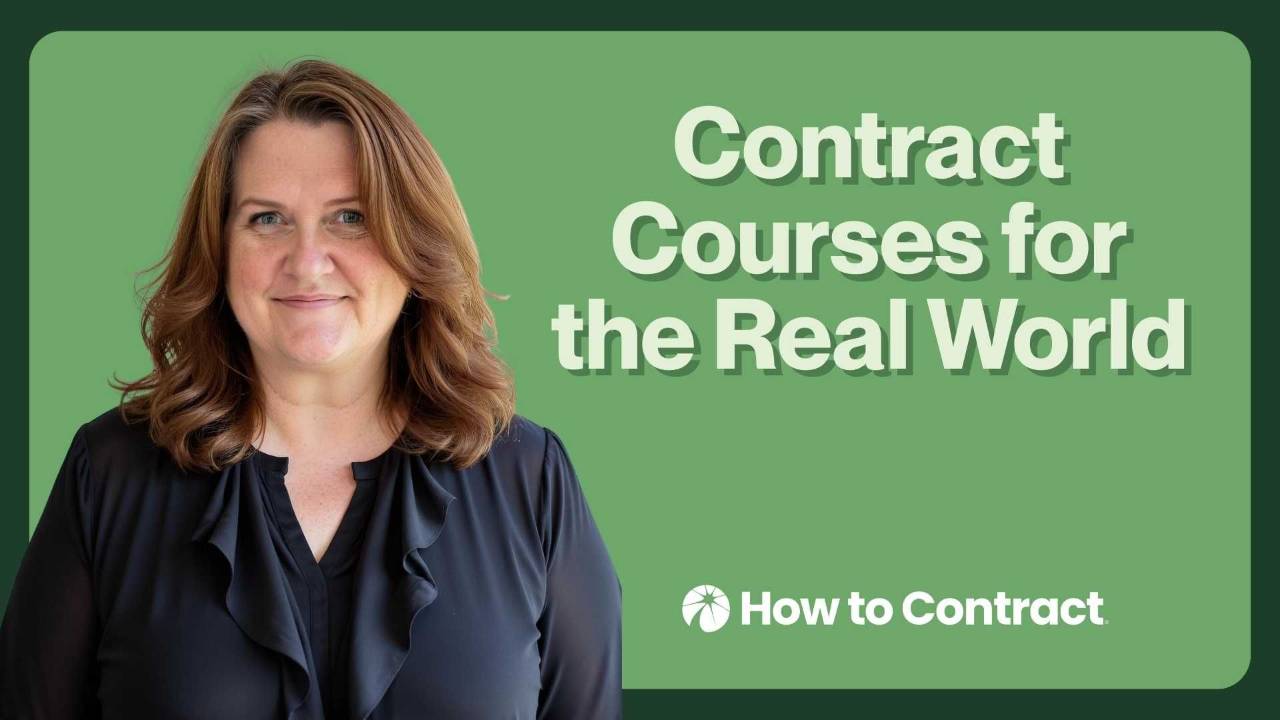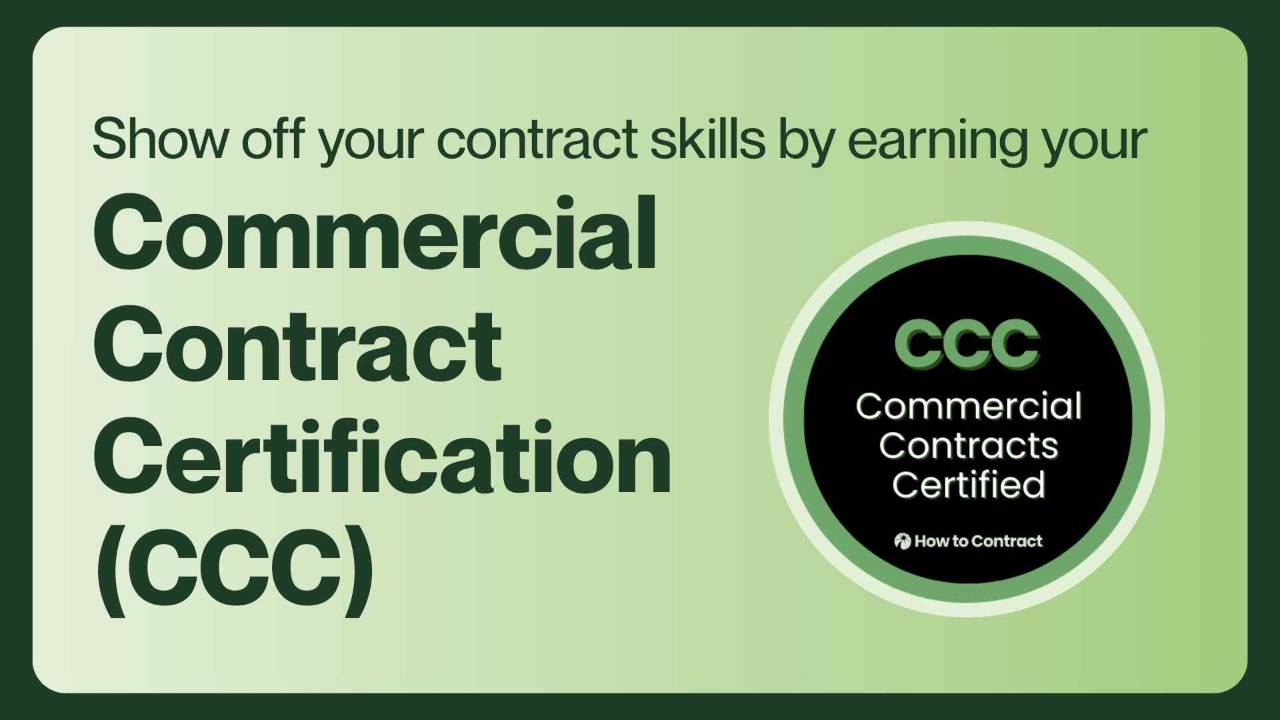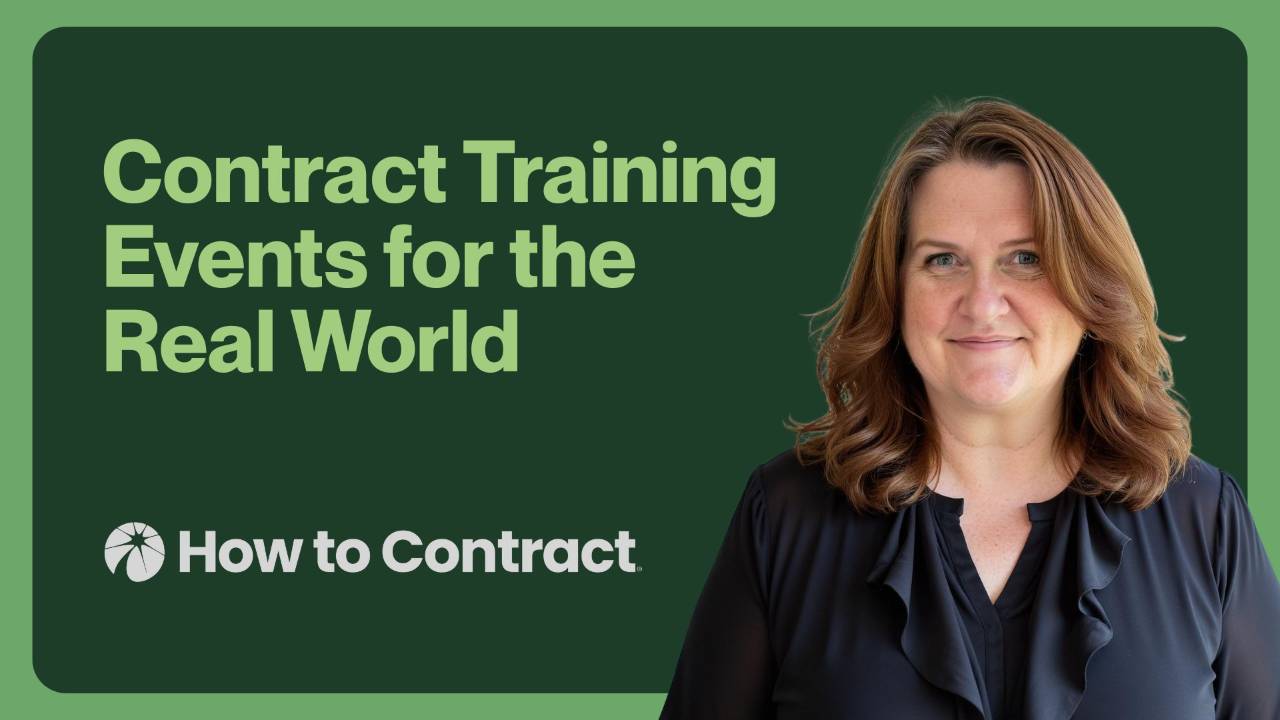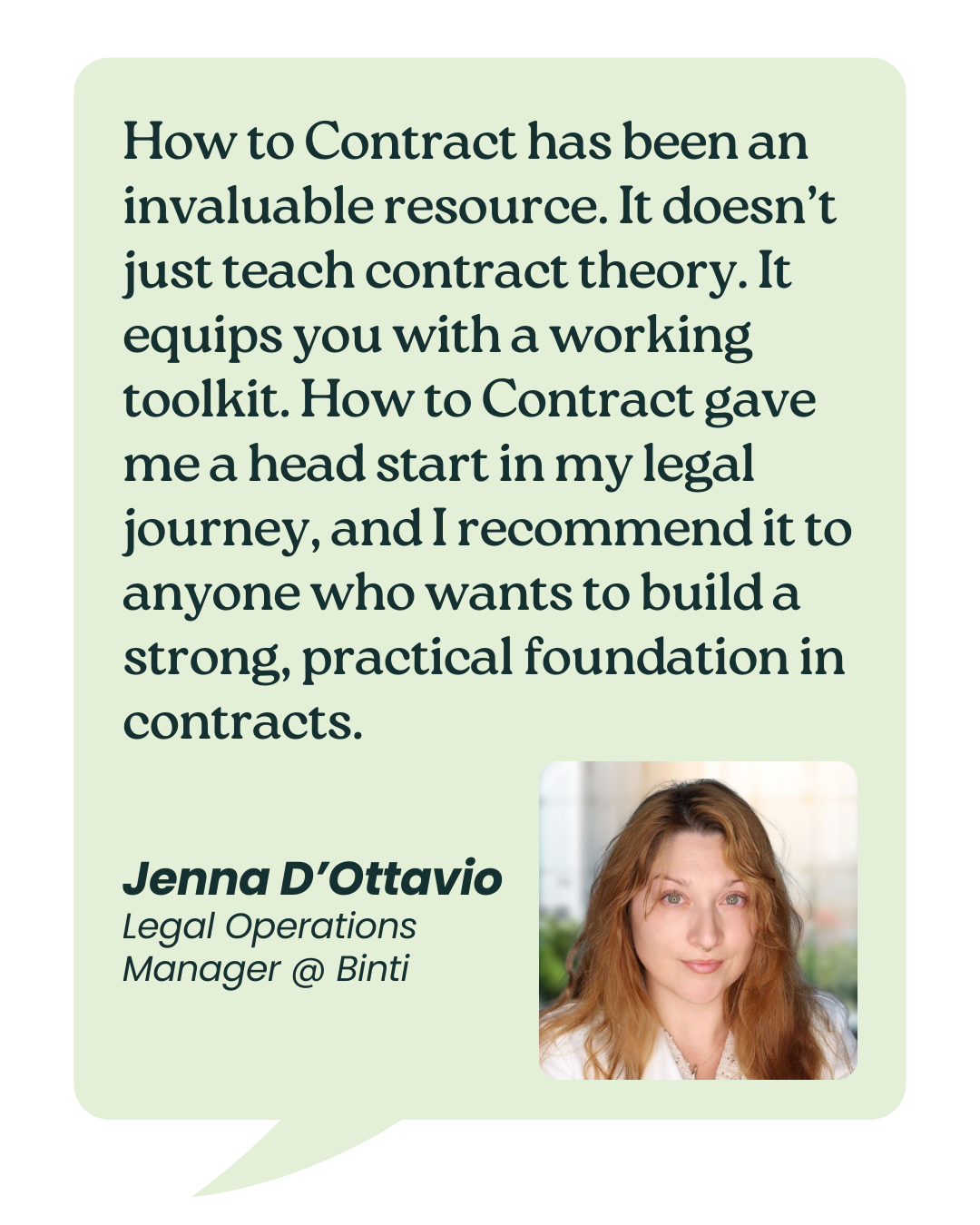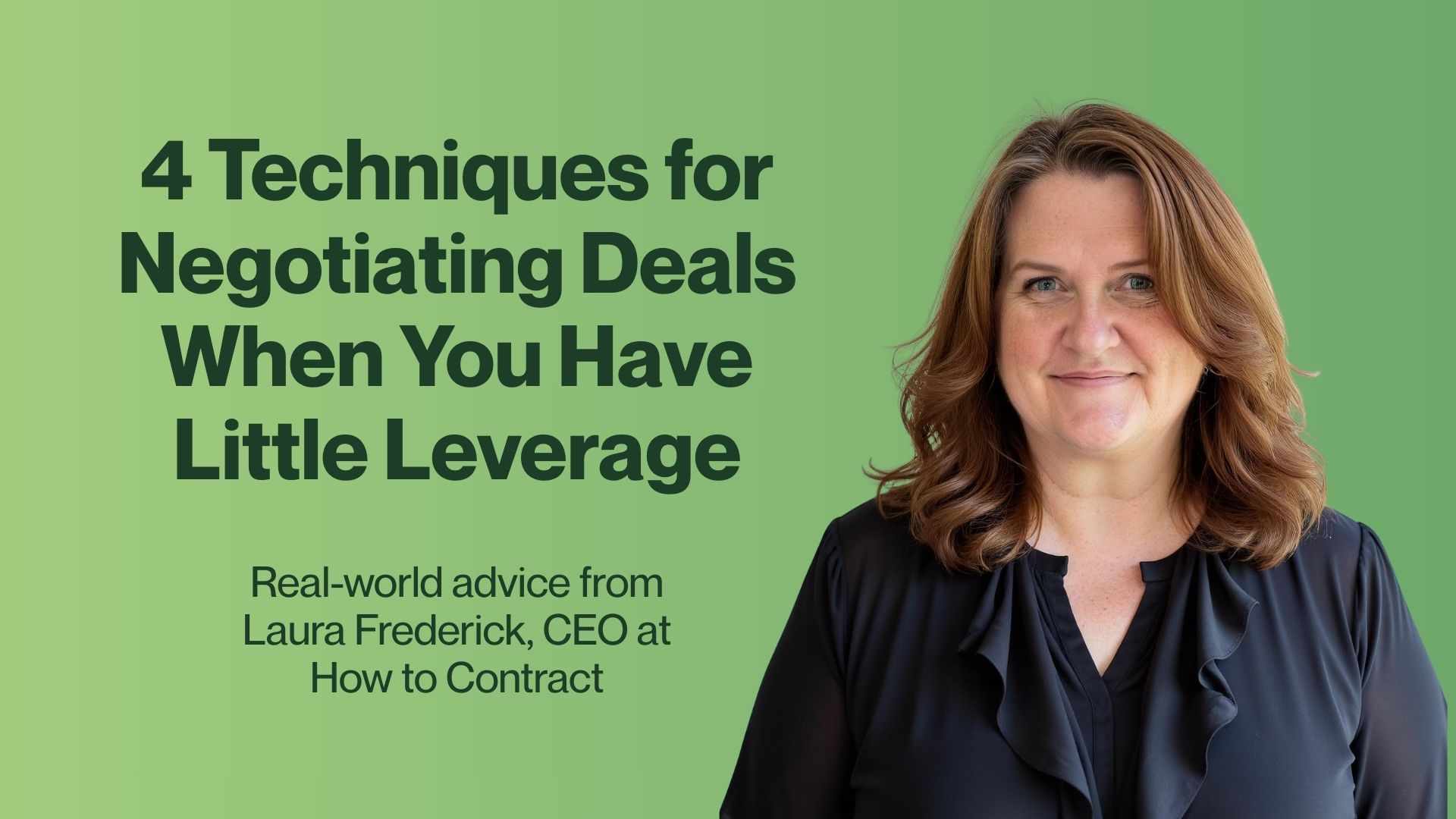
4 Techniques for Negotiating Deals When You Have Little Leverage
4 Best Strategies for Negotiating Contracts When You Have Little Leverage
When you're negotiating against big industry gorillas, one of your most important tools is your communication channels. All the people on your team have counterparts at the big company. You can use those people to gain information and share information.
Your business team is often a great source of intelligence. Let's say you're buying something from a vendor. Your procurement person or business lead talks to the vendor salesperson. They can tell you about the kinds of provisions this large company will agree to, won't agree to, how they approach things, and what their practices are. You can gather a lot of information that way.
I also like using these channels as a backup way to share messages and hear messages. I actively cultivate these communications to improve my insights and intelligence about my counterparty, especially in negotiations that follow a different approach than my typical ones.
Four Techniques When You Have Little Negotiation Leverage
You've gathered your intelligence, you've got your contract, you're getting ready to start negotiating. You're going to be talking to the lawyer on the other side. Here are four techniques I recommend when dealing with a big industry gorilla who may not be very forthcoming with changes and is not motivated by fairness, reasonableness, and industry standards.
1. Be Nice
This is the most important one, and it can be hard. Even if you're a nice person generally and use kindness in your negotiations and business world, it's hard not to get upset when the counterparty is being unreasonable. When they're saying no without an explanation. When they're refusing changes that to you, they should accept. That's when you feel that anger and frustration and discontent creeping in, and it affects how you deal with them.
Focus on empathizing with that lawyer. I've been in those situations. It can be very hard to just say no, because you want to as a human, give to another human. You want to be nice, you want to give them what they need. But that's not your company's position. So you're in this position where you're having to say no.
Have empathy for that lawyer who is taking these hardline positions, because it's not that easy. At least I didn't find it that easy.
At a strategic level, being kind encourages trust and connection. At these big companies, the lawyers are deciding what concessions to make. They often have playbooks that give them some options of what they can change in the contract. They may not be authorized to change a lot, but they probably can change some things. Those are in a playbook. It's the lawyer's discretion, sometimes with the business person, sometimes independently, when to make those concessions.
It's human nature that if the lawyer likes you and has that connection and trusts you and feels good about it, they may make some of those concessions on that basis. If you're the jerk, it's much more likely that they're going to give you these discretionary concessions. But if you're nice, I think your likelihood of getting those increases significantly.
2. Be Realistic
You have to accept the situation that you're in, which is that you're not going to get a ton of changes. Making a huge markup, being super aggressive in your asks, all those kinds of things. While it is a tactic that you can use, I see it doesn't work as well because it creates a disconnect between you and the other lawyer. They're not expecting you to be this misaligned with expectations of how you'll approach this negotiation.
Understanding where you are in this negotiation, thinking about the relationship, having done your diligence, and having looked at your risk. I encourage you to think realistically about what changes you're going to ask for from this counterparty and how you're going to approach it.
3. Be Generous
This one is overlooked a lot. As humans, we have a need to show kindness back to people who have been kind to us. There are lots of studies on this. If somebody does kindness for you, you have this need to show kindness back to them, even if you're not aware of it. It goes back to part of our being social creatures, community creatures who depend on each other. That need to repay kindness is something that you can use in these negotiations.
I typically will start out my negotiation and have several things that I can concede quickly in the beginning of the contract negotiations. We'll hit the first one, the counterparty lawyer will ask me to take it out. And I'll say, "Oh, yeah, no, I see what you mean there. Let's, yeah, no problem. Let's remove that one." We get to the next one. "Oh, sure. No, I see your point. We can take, we can give that up. I'll make that concession."
You do this for a few times. Then you get to the one that you really need, where you can't concede and you want them to give to you. It's much more likely, if you've already given them four or five, six concessions in a row, and you've reached this one, there's going to be this strong psychological need to repay all your kindness.
It doesn't work all the time, because their business practices may overrule that tendency. But I think you're much more likely to get that concession back if you've already been generous to them consistently before you even reach that point.
This is another reason why you never want to go in empty-handed into these negotiations, because you need to build that pattern so that the counterparty has some social obligation and some feeling of obligation to show some kindness back to you.
4. Avoid Assumptions
The baby bird doesn't get fed unless its mouth is open. The idea is, you're not going to get anything unless you ask. You can ask nicely, and you can probe and have discussions and try to use all your EQ skills to get the counterparty to make concessions.
I encourage you to go ahead and just ask. It doesn't hurt anything if you do it nicely, if you're not overbearing, if you're not asking for a million things. Sometimes you'll be surprised at what the counterparty can give up. You don't want to have not asked and then miss out on a concession you could have gotten if you did ask.
Know When to Walk Away
No matter what, you want to make sure that you're clear on when you need to walk away. We're going to use all these techniques to try and get the best deal we can. But sometimes the best deal you can is not a good deal. They say that sometimes the best deal is no deal.
You really want to be thinking about that as you're moving forward with negotiating. You negotiate to the best deal you can and then you decide if that's good enough.
How to Contract's membership is designed to help you build real-world expertise with commercial contracts. Get access to our comprehensive system of live and on-demand courses, weekly lessons, detailed playbooks, and more. Join today!

